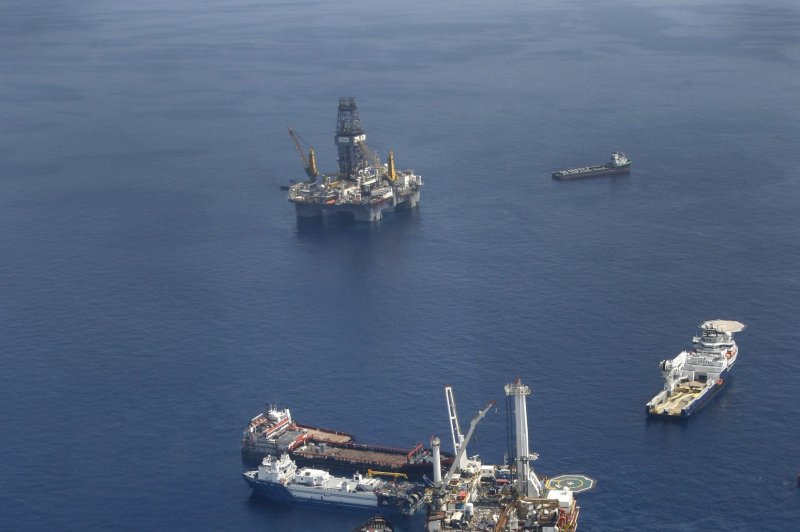Lebanon says it's committed to transparency as it moves to open its waters to foreign oil and gas investors following years of rancor. File Photo by A.J. Sisco/UPI |
License Photo
Jan. 27 (UPI) -- Transparency is a top priority for a Lebanese government looking to bring bidders back to its offshore oil and gas reserves, the energy minister said.
Lebanon this week filed a request to join the Extractive Industries Transparency Initiative, a body that aims to cast light on how countries manage their oil, gas and mineral resources. Energy Minister Cesar Abi Khalil said that, as the country opens itself up to foreign energy investors, accountability was essential.
"At the beginning of the new term [of office], transparency is our main focus," he was quoted by The Daily Star in Lebanon as saying.
The effort follows a decision to put five offshore oil and gas blocks up for auction in Lebanon's Exclusive Economic Zone by the end of February. State profits, the minister said, would be decided after the bidding process is completed.
Decrees put forward by the Lebanese government outline a model for revenue sharing, something that derailed previous efforts to court foreign investors. Three years ago, Beirut postponed an offshore natural gas auction after rancor erupted over the amount of revenue Beirut would get from energy companies.
The Lebanese government estimates there are 95 trillion cubic feet of natural gas and 750 million barrels of oil in its territorial waters. The country, meanwhile, has been at odds over maritime borders in the Mediterranean Sea. According to the Lebanese newspaper, Israel has been the hold out in U.N.-mediated efforts to settle border disputes.
A review of Lebanon's economy completed by the International Monetary Fund finds prospects improved after the country formed a new government last year. Growth remains subdued as the country copes with spill-over from the Syrian conflict, but lower crude oil prices offset some of pressure.















